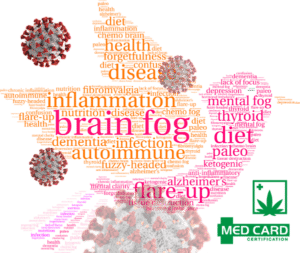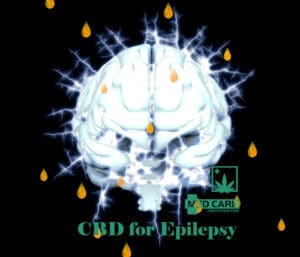
Treating Perimenopausal Conditions with Medical Marijuana
- Some perimenopausal women are finding a measure of relief from women’s health issues with medical marijuana.
- Medical marijuana has been shown to help with a wide array of symptoms including chronic pain and cramping, anxiety, and depression.
- There are conflicting reports as to whether or not marijuana can help prevent or treat cancer, however, its effectiveness at treating the side effects of chemo are well known.
- Marijuana and cannabis-infused medicines are available at medical marijuana dispensaries nationwide, however, some states require patients to get a medical marijuana card to shop at dispensaries.
The reproductive organs of middle-aged women are prone to a handful of life-threatening diseases such as breast, ovarian, cervical, or uterine cancers. Moreover, many middle-aged women have to deal with the transition into menopause as their body prepares to shut down its baby-making equipment.
Can cannabis products available at medical marijuana dispensaries nationwide help middle-aged women maintain good reproductive health? And is cannabis effective at preventing tumors or slowing their progression in aging women?
Far more research needs to be done to adequately determine if medical marijuana can be considered an anti-tumor treatment. But there is substantial evidence that phytocannabinoids found in medical marijuana can help ease the side effects of cancer treatments and reduce symptoms of perimenopause (the transition from PMS to menopause).
Let’s take a look at a few of the medical conditions that are specific to women over 50 and some of the studies that have been undertaken to determine whether or not medical marijuana can help treat these patients.
For those who would like to take a deeper dive into these topics, links to some of the studies discussed below can be found at the end of the article. We’ll also link to more in-depth articles throughout this post.
Can medical marijuana help treat symptoms of perimenopause?
Perimenopause symptoms can arise anywhere after the age of 35 for some women, although generally it doesn’t manifest until the early to late forties. Hormonal shifts may cause extreme fatigue, anxiety, mood swings, insomnia, vaginal dryness, heavy periods, and hot flashes. Consuming moderate amounts of cannabis may alleviate some of these issues, either in conjunction with standard treatments or on its own for some women.
As women’s bodies age, their estrogen levels decline naturally and gradually. There is a distinct link between estrogen production levels and the body’s innate endocannabinoid system. Moreover, a link between a deficient endocannabinoid system and early-onset menopause is currently being explored. Cannabis consumption may actually be a viable alternative to traditional Hormone Replacement Therapy for some patients.
Estrogen production is believed to play a significant role in the maintenance of bone density. As women approach their menopausal years, some may experience the onset of osteoporosis. This can potentially be avoided to some extent with the ingestion of cannabinoids CBG, CBD, CBC, and THCV. These compounds are being closely studied to explore the possibility of keeping perimenopause-related osteoporosis at bay.
Insomnia, mood swings, depression, low libido, and anxiety may also be alleviated with the use of cannabis products. The combination of the cannabinoids CBD and THC is known to boost the metabolization of estrogen. This metabolic boost from marijuana consumption may very well combat these debilitating issues for women in all stages of menopause.
Furthermore, THC may effectively mimic certain aspects of the endocannabinoid anandamide. Among other things, this neurotransmitter is responsible for regulating body temperature. This regulation may help lessen the intensity and duration of hot flashes during perimenopause.
Does medical marijuana help protect against breast, ovarian, cervical, or uterine cancers in perimenopausal women?
There is good news on the horizon for perimenopausal women suffering from ovarian, uterine, cervical, or breast cancer. Recent trials and studies are yielding some positive results in the realm of cannabis use for cancer treatments.
Clinical human studies in the field are rare at this time. However, there has been a number of preclinical animal studies conducted in recent years indicating that cannabinoids inhibit the growth of tumor cells.
The American Cancer Society made the following statement in regard to cannabis studies:
“More recently, scientists reported that THC and other cannabinoids such as CBD (cannabidiol) slow growth and/or cause death in certain types of cancer cells growing in laboratory dishes. Some animal studies also suggest certain cannabinoids may slow growth and reduce the spread of some forms of cancer. However, these substances have not been tested in humans to find out if they can lower cancer risk. There is no available scientific evidence from controlled studies in humans that cannabinoids can cure or treat cancer.”
Cannabis researchers are optimistic that their studies and findings will yield groundbreaking results for marijuana cancer treatments.
Can medical marijuana help treat perimenopausal cancer patients?
Some female-centric cancers can be exceedingly difficult to detect and sadly are not diagnosed until they are in later stages of progression. Extreme life-saving treatments such as chemo and radiation are rife with debilitating side effects. Additionally, some of the medications used to combat those side effects also tend to cause other unwanted side effects. Marijuana products may effectively and non-invasively treat many of these undesirable issues.
A leading oncologist from the University of California is a strong supporter of cannabis treatment for chemo-induced nausea.
Dr. Donald Abrams recently stated: “I think you still need to use conventional therapies to treat the disease, but if you have symptoms that might benefit from cannabis, you should consider using it. As an oncologist for 38 years, I can tell you it’s an effective treatment for nausea.”
Doctor Abrams also believes that the consumption of marijuana products may reduce the inflammatory response triggered by invasive treatments. Reducing the response may effectively relieve pain associated with chemo. In fact, recent cannabis studies report that cancer patients who consumed cannabis concentrates in clinical trials appeared to need far less prescription pain medication.
He thinks that cannabis may stimulate appetite to offset chemo-related weight loss, in addition to alleviating anxiety and depression.
Ovarian cysts (polycystic ovary syndrome)
Ovarian cysts (polycystic ovary syndrome) can wreak havoc on neurological activity, metabolism, neurotransmitters, and hormonal balance. This disturbance may cause extreme bouts of depression, anxiety, and radical mood swings.
PCOS can also negatively affect insulin balance. Cannabinoids in medical marijuana may have the ability to improve the negative feedback control of insulin balance and regulate blood sugar levels.
Ovarian cysts can also cause a spike in the stress hormone cortisol, which can result in severe anxiety attacks. Cannabis is well known for its anti-anxiety effects. In fact, the anti-anxiety effects of cannabis were recently compared to the pharmaceutical anxiety medication benzodiazepine in a double-blind, placebo-controlled study. The researchers concluded that the administration of cannabis effectively reduced anxiety in human participants when they were voluntarily subjected to a stressful scenario.
Can medical marijuana help treat uterine fibroid?
There is most definitely a lack of clinical studies on the application of cannabis for the treatment of uterine fibroids. However, some researchers believe that the administration of cannabis may relieve the inflammation and pain associated with this condition.
Cannabis may actually balance the hormonal shift that accompanies fibroid growth by stimulating the endocannabinoid system to increase serotonin production. Cannabinoids may also potentially slow the progression and attenuate the cell accumulation associated with fibroid tumor growth.
The Journal of the American Medical Association reported on a group of female volunteers who used cannabis to relieve pain and cramping during their periods. The study ultimately concluded that cannabis may significantly reduce swelling in the uterus.
Some fibroid patients have also found relief from pain and inflammation from CBD suppositories.
Can medical marijuana help treat endometriosis?
Women of all ages can suffer the ravages of endometriosis. This condition usually manifests in women in their twenties. However, it can severely impact middle-aged women as well. Endometriosis often causes severe pelvic and abdominal pain as well as crippling anxiety and depression. Tragically, this disease may also cause infertility issues.
Some health care practitioners believe that a compromised endocannabinoid system may contribute to the onset and progression of this painful disorder.
One pioneering doctor has been the driving force in the development of cannabis-based diagnostic and medical innovations.
Dr. Ethan Russo, of CReDO Science, is convinced that cannabinoids (CBD in particular) activate the TRPV1 vanilloid receptor. This receptor may be overly expressed in endometriosis patients and is believed to cause pain when stimulated.
He theorizes that overly-excited cells have a tendency to proliferate in endometriosis sufferers, and consequently create dysfunction in the cannabinoid receptors.
“In endometriosis lesions compared to controls, there has been a decrease in both the CB1 and CB2 receptors. Cannabidiol is a stimulator of the TRPV1 receptor that is able to desensitize it. That’s a way of saying that after a little bit [of stimulation], the TRPV1 receptor doesn’t respond anymore. So it’s a way of treating pain.”
Cytokine production may be the greatest contributor to inflammation and pain in endometriosis patients. Cytokines are naturally occurring proteins known to trigger the inflammatory response. According to some studies, cannabis may reduce the inflammatory response by decreasing cytokine production.
Furthermore, the results of a recent survey involving 484 female patients revealed that cannabis was one of the top-ranking pain relievers for endometriosis. In fact, cannabis scored an average of 6.3 for efficacy when rated on a scale of 1 to 10.
Can medical marijuana help treat PMS and Menstrual Pain?
PMS and menstrual pain tend to produce similar symptoms, albeit the symptoms in days prior to the period are often exacerbated by the hormonal build-up.
When the ovulation cycle is complete, the female body prepares itself for pregnancy, and estrogen and progesterone levels drop precipitously. This sudden drop can cause abdominal pain, breast tenderness, fatigue, anxiety, and depression.
Cannabis, according to recent research, may reduce cramping during PMS and menstruation by acting as an antispasmodic. Cannabinoids are also believed to block the pain-transmitting neural pathways thereby relieving discomfort from cramping.
Conclusion
Research on the efficacy of medical marijuana is still in its early stages. More clinical studies are required to fully comprehend the implications of phytocannabinoids in the treatment of women’s health conditions.
Not all states with medical marijuana programs offer a medical marijuana card for these conditions. However, 18 U.S. states now permit all adults 21 and older to shop at local dispensaries.
Hemp-derived CBD products may be another option for women who live in states where marijuana is still illegal. CBD produced from hemp is legal nationwide. Women of all ages can buy CBD online or in local shops without a medical marijuana card.
The medical conditions mentioned in this article are all serious and some are life-threatening. Perimenopausal women suffering from these ailments should not attempt to self-medicate. Patients are advised to seek the opinion of a knowledgeable medical marijuana doctor before using cannabis products.

Sign Up for Medical Cannabis Today!
For potential patients, if you’re ready, we make it easy to connect with a medical marijuana doctor nearby or online. If you are interested in getting certified, please fill out the MMJ patient registration form below and press submit to get started. See if you qualify today!

MedCard Registration Form


Helpful Medical Marijuana Links:
Sources and additional reading
- Estrogen recruits the endocannabinoid system to modulate emotionality
- From Cannabinoids and Neurosteroids to Statins and the Ketogenic Diet: New Therapeutic Avenues in Rett Syndrome?
- Self-management strategies amongst Australian women with endometriosis: a national online survey – BMC Complementary Medicine and Therapies
- Marijuana And Cancer – Marijuana as Medicine?
- Marijuana and Cancer
- Can Cannabis Help You Feel Better During Menopause? – How it works, what to avoid, and where to legally acquire it
- More Midlife Women Using Cannabis to Manage Perimenopausal Symptoms














